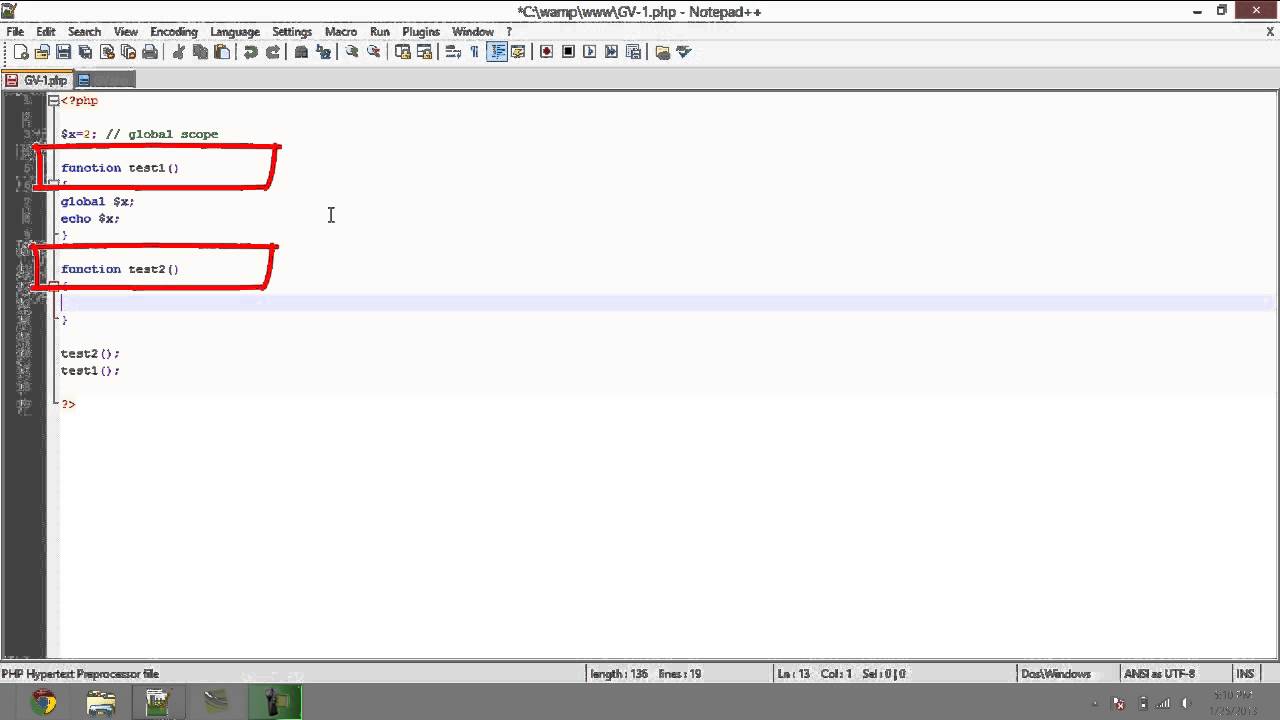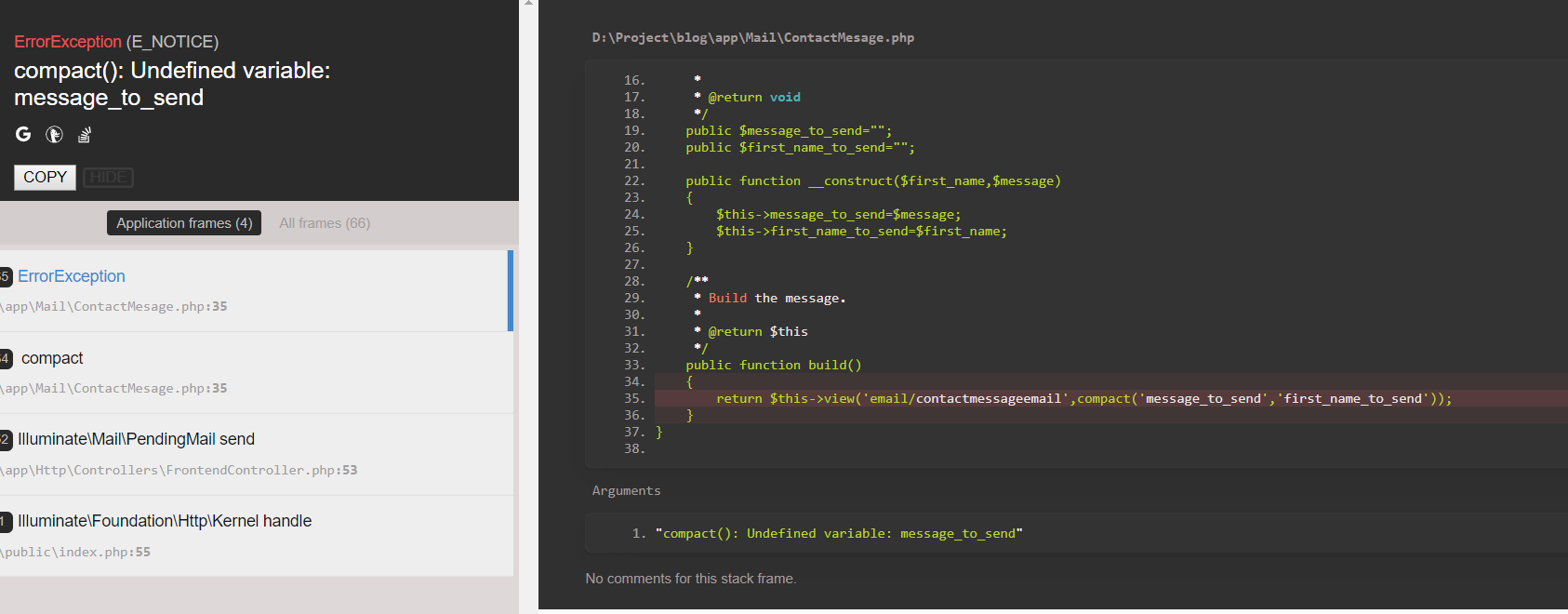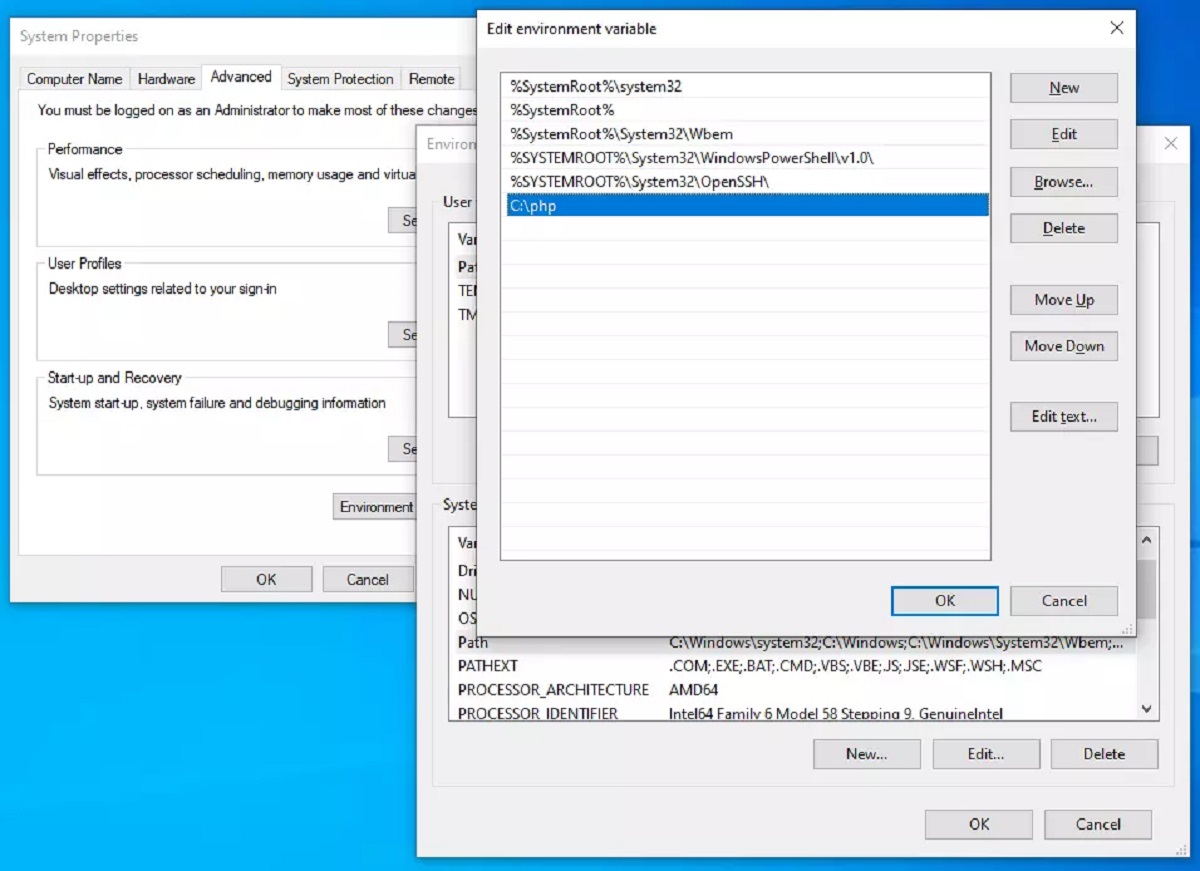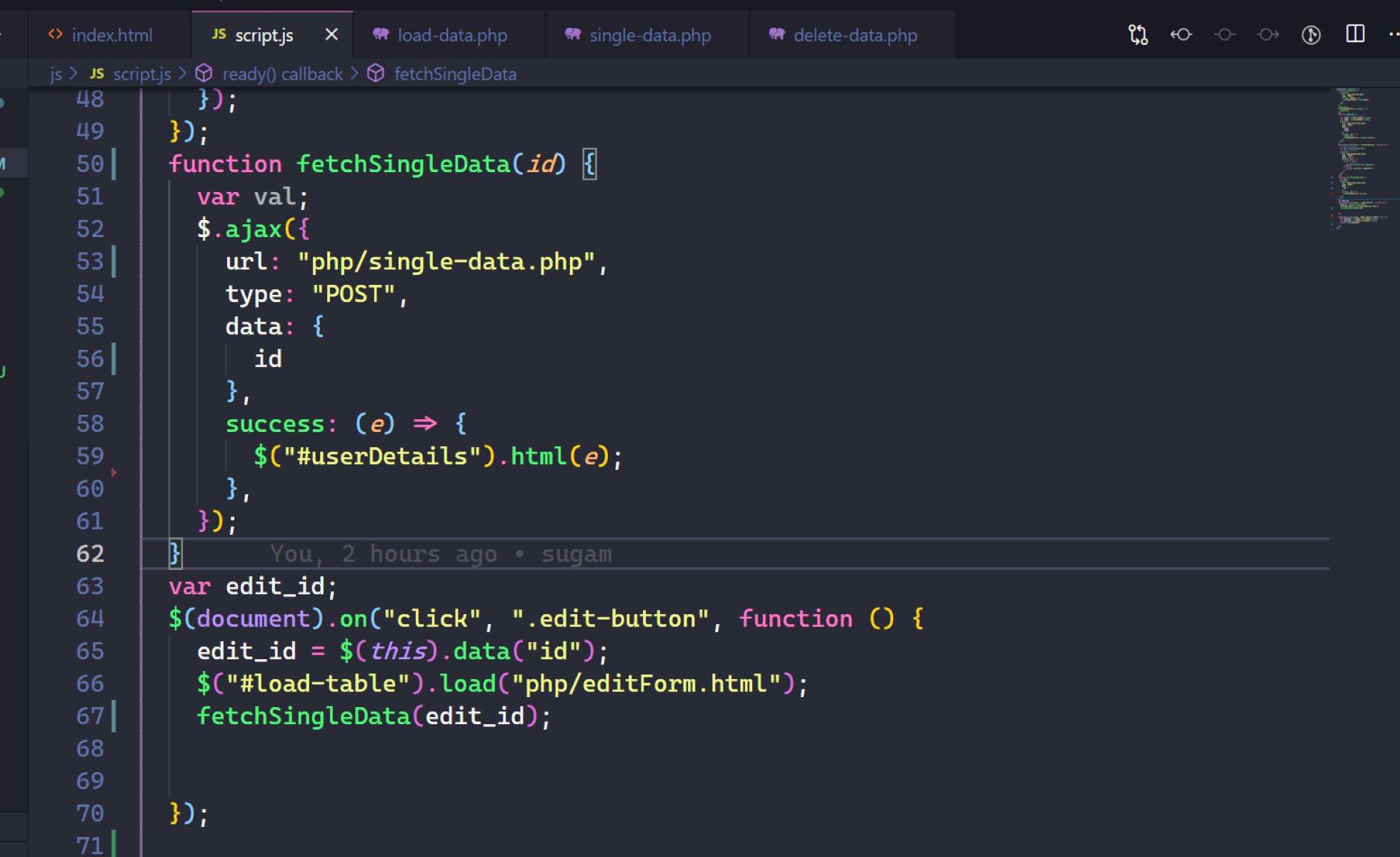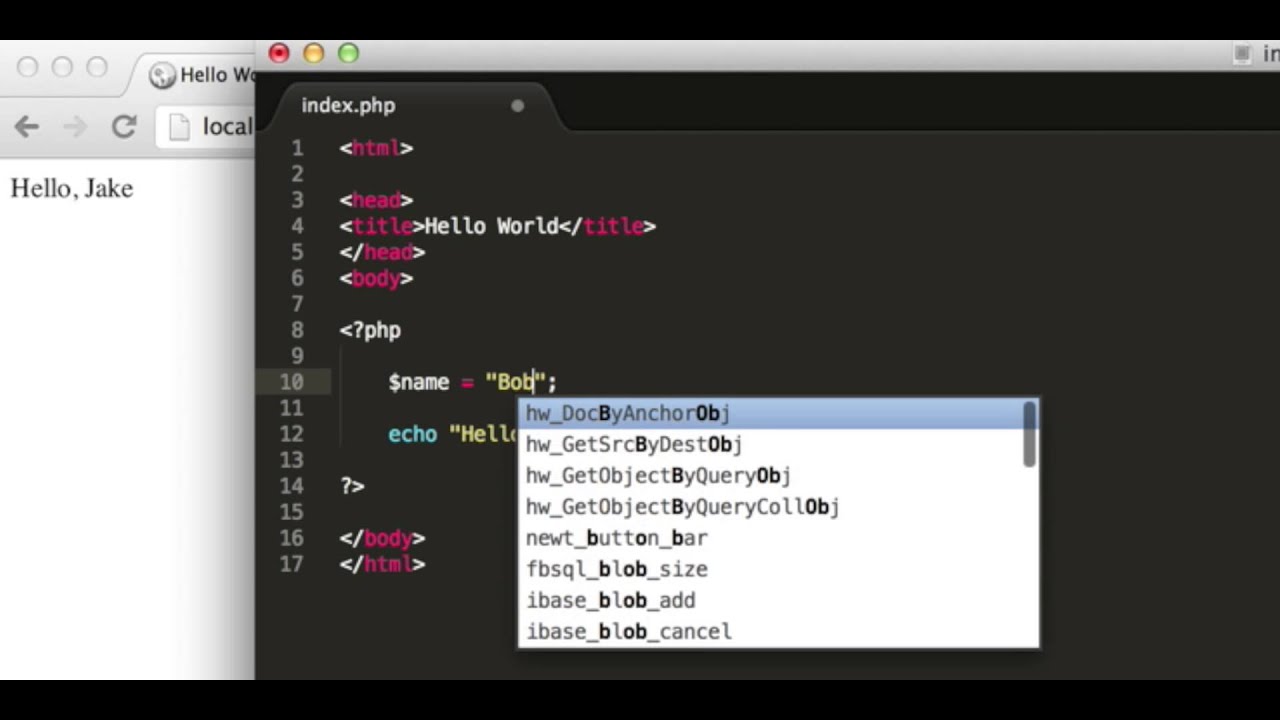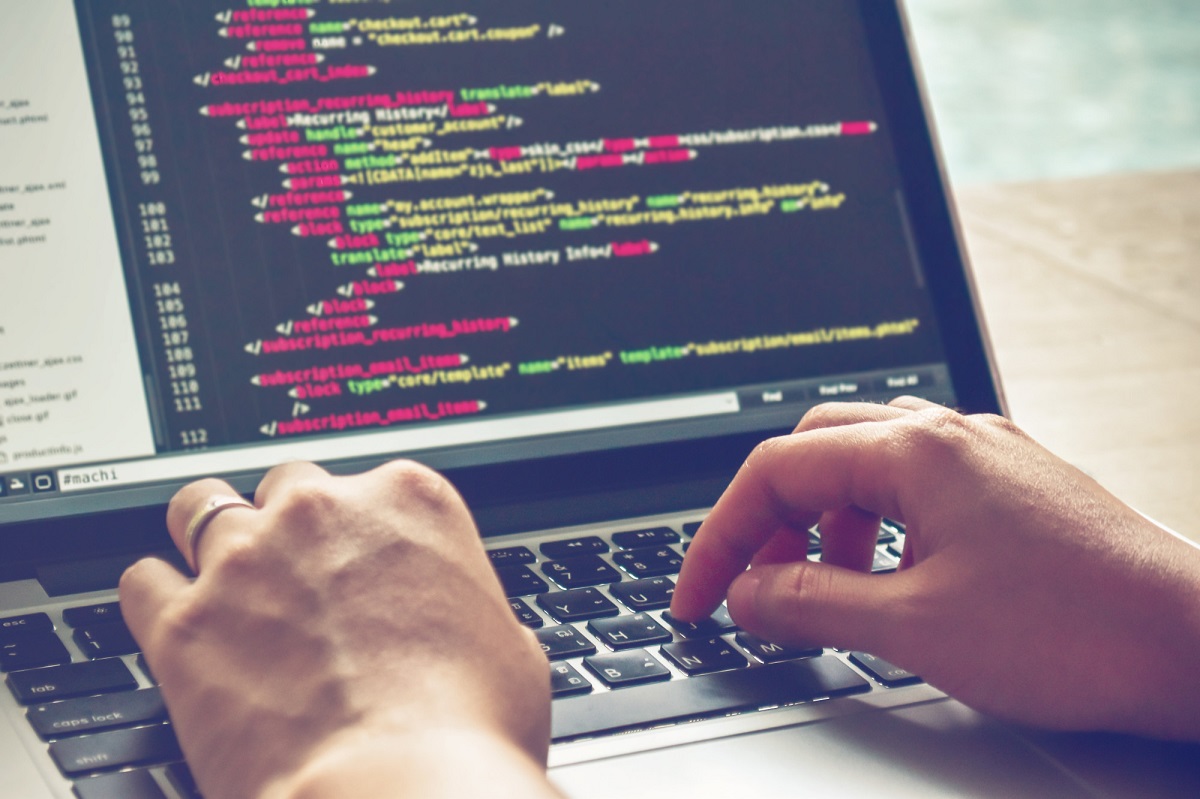Introduction
Global variables in PHP play an essential role in programming, allowing data to be accessed and modified across different parts of a program or script. They provide a way to store values that can be accessed from anywhere within the code, regardless of scope. Understanding how to make a variable global in PHP is a crucial skill for developers, as it enables efficient management and manipulation of data.
In this article, we will delve into the concept of global variables in PHP and explore various methods of making variables global. We will also discuss the advantages and disadvantages of using global variables and provide best practices for their proper utilization.
Whether you are a beginner or an experienced PHP developer, grasping the concept of global variables and knowing how to use them effectively will empower you to write cleaner, more modular code and streamline your development process.
So, let’s dive into the world of global variables in PHP and discover how they can enhance the functionality and flexibility of your code.
Understanding Global Variables in PHP
In PHP, variables are typically defined within a specific scope, such as inside a function or a class. These variables can only be accessed within their respective scopes, limiting their usability across different parts of the code. However, there are situations where it is necessary to share data between multiple functions, classes, or even files. This is where global variables come into play.
A global variable is a variable that can be accessed and modified from any part of the code, regardless of its scope. It allows data to be shared and maintained across different functions or files, providing a convenient method for passing values between different parts of a PHP application.
By default, PHP variables have a local scope, meaning they are only accessible within the block of code where they are defined. To make a variable global, we need to explicitly declare it as a global variable so that it can be accessed from any part of the program.
Global variables can be useful in a variety of scenarios, such as:
- Sharing configuration values across multiple files or functions.
- Passing data between different parts of an application without the need for complex parameter passing.
- Storing information that needs to be accessed and modified frequently throughout the program.
However, it is important to use global variables judiciously and be aware of their potential drawbacks. Overuse of global variables can lead to code that is difficult to maintain and debug, as they can introduce unexpected side effects and make it harder to understand the flow of data within the program.
Now that we have a clear understanding of what global variables are and their purpose, let’s explore how we can make a variable global in PHP.
Using the global Keyword in PHP
In PHP, the global keyword is used to declare a variable as global within the current scope. It allows us to access and modify the value of a variable from anywhere in the code, regardless of its original scope.
To make a variable global using the global keyword, simply prefix the variable name with global inside a function or a class method where the variable is being used. This informs PHP that the variable is intended to be global, allowing it to be accessed and modified freely.
Here’s an example that demonstrates the usage of the global keyword:
php
$globalVariable = “Hello, world!”;
function printGlobalVariable() {
global $globalVariable;
echo $globalVariable;
}
printGlobalVariable(); // Output: Hello, world!
In the above example, we have a global variable named $globalVariable that is defined outside the function. Inside the function printGlobalVariable(), we declare the variable as global using the global keyword and then print its value.
By declaring the variable as global, we can access and use it within the function, even though it was defined outside of it.
It’s important to note that when using the global keyword, the variable is not being passed as a parameter to the function. Instead, it allows direct access to the global variable from within the function. Any changes made to the global variable inside the function will also be reflected outside of it.
Using the global keyword is a straightforward and effective way to make a variable global in PHP. However, it’s essential to exercise caution when working with global variables to prevent unintended modifications or conflicts with other parts of the codebase.
Next, let’s explore another method of making a variable global in PHP by using the $GLOBALS superglobal array.
Declaring a Variable as Global in PHP
In addition to using the global keyword, PHP provides another way to make a variable global by utilizing the $GLOBALS superglobal array. The $GLOBALS array is a built-in PHP variable that stores all global variables as key-value pairs, with the variable name as the key and its value as the corresponding value.
To declare a variable as global using the $GLOBALS array, we can simply assign a value to the variable using its name as the key:
php
function makeGlobalVariable() {
$GLOBALS[‘globalVariable’] = “Hello, world!”;
}
function printGlobalVariable() {
echo $GLOBALS[‘globalVariable’];
}
makeGlobalVariable();
printGlobalVariable(); // Output: Hello, world!
In the example above, we have two functions: makeGlobalVariable() and printGlobalVariable(). Inside makeGlobalVariable(), we assign the value “Hello, world!” to the $GLOBALS['globalVariable'] key. This automatically creates a global variable named $globalVariable. Subsequently, inside printGlobalVariable(), we access the global variable using the $GLOBALS array and output its value.
This method offers an alternative approach to making variables global in PHP, especially when dealing with multiple global variables or when declaring them outside the scope of a function or class. It avoids the need for the global keyword and instead directly accesses the global variable through the $GLOBALS array.
Keep in mind that when using the $GLOBALS array, you no longer need to explicitly declare the variable as global within a function or method. However, it’s important to note that direct access to global variables can make the code more difficult to maintain, as it may introduce naming conflicts or unintended modifications to the global variable.
Now that we have explored how to declare a variable as global using the $GLOBALS superglobal array, let’s move on to the next method: importing a PHP file to access global variables.
Importing a PHP File to Access Global Variables
In some cases, it may be necessary to make global variables available across multiple PHP files or scripts. One way to achieve this is by importing a PHP file that contains the declaration and initialization of the global variables.
To import a PHP file and access its global variables, we can use the require or include statements. These statements allow us to include the specified PHP file at the point of execution, making its contents available within the current script.
Let’s consider an example where we have a file named config.php that contains the declaration of our global variable:
config.php:
php
To access the $globalVariable in another PHP file, we can use the require or include statement, followed by the filename:
index.php:
php
In the example above, we use the require statement to import the config.php file. This brings the global variable $globalVariable into the scope of the index.php file, allowing us to access and use its value.
Using this approach, we can create a central configuration file that contains all our global variables and include it in multiple PHP files. This promotes code reusability, ensures consistency across files, and simplifies the management of global variables throughout the application.
It is worth noting that the require and include statements have slight differences in behavior. The require statement will produce a fatal error and stop script execution if the specified file cannot be included, while the include statement will only generate a warning and continue execution. Choose the appropriate statement based on your application’s requirements.
Now that we have explored how to import a PHP file to access global variables, let’s discuss the advantages and disadvantages of using global variables in PHP.
Advantages and Disadvantages of Using Global Variables in PHP
Using global variables in PHP can offer certain advantages and benefits in terms of code organization and data accessibility. However, it is important to be aware of the potential drawbacks they can introduce. Let’s explore the advantages and disadvantages of using global variables in PHP:
Advantages:
- Simplicity and Ease of Access: Global variables provide a simple and convenient way to access data from anywhere within the code without the need for complex parameter passing.
- Sharing Data Between Multiple Components: Global variables make it possible to share data between functions, methods, or even separate PHP files, facilitating communication and enhancing code modularity.
- Efficient Configuration Management: Global variables can be used to store configuration values, such as database credentials or API keys, making it easy to access and update them in one central location.
- Frequent Data Modification: If you need to frequently modify a certain value throughout your codebase, making it global eliminates the need to pass the value as a parameter repeatedly.
Disadvantages:
- Namespace Pollution: Overuse of global variables can clutter the global namespace, making it difficult to keep track of variable names and creating the potential for naming conflicts.
- Debugging Challenges: Global variables can introduce unexpected behavior and make debugging more challenging, as any part of the code has the ability to modify their values. This can lead to difficult-to-trace bugs.
- Dependency on External Factors: Global variables can introduce dependencies between different parts of the code, making it harder to test or modify individual components without affecting others.
- Code Maintainability: Global variables can make code harder to understand and maintain, especially in larger projects, as their usage and modifications can be scattered across different files and functions.
While global variables can be useful in certain scenarios, it is important to exercise caution and follow best practices when incorporating them into your PHP codebase. Consider alternatives such as dependency injection or encapsulating data within objects when appropriate to promote cleaner and more structured code.
Now that we have explored the advantages and disadvantages of using global variables in PHP, let’s move on to discussing some best practices for their proper utilization.
Best Practices for Using Global Variables in PHP
While global variables can be a powerful tool in PHP, their usage should be approached with caution to ensure code maintainability and minimize potential issues. To use global variables effectively, it is important to follow these best practices:
- Minimize Usage: Avoid excessive use of global variables. Consider whether a variable truly needs to be global or if it can be encapsulated within a smaller scope.
- Limit Global Variable Modifications: Restrict modifying global variables as much as possible. Frequent modifications can lead to unexpected behavior and make the code harder to understand and debug.
- Prefix Global Variable Names: Add a consistent prefix or naming convention to global variable names. This helps to distinguish them from local or function-specific variables and reduces the risk of naming conflicts.
- Centralize Global Variables: Store global variables in a single dedicated configuration file. This centralizes their management and makes it easier to access and update their values consistently across the codebase.
- Document Global Variables: Provide clear documentation and comments for global variables, including their purpose, expected values, and any restrictions or considerations for their usage. This aids other developers who might work on the codebase.
- Consider Alternatives: Evaluate whether using global variables is truly the best solution for achieving your specific goals. Depending on the situation, alternative patterns or techniques, such as dependency injection or encapsulation within objects, may offer a cleaner and more maintainable approach.
- Encapsulate Global Variables in Classes: Whenever possible, encapsulate global variables within classes and use getter and setter methods to access and modify their values. This promotes encapsulation, better organization, and easier management of global state.
- Write Unit Tests: Test the code using global variables thoroughly. Write unit tests that cover scenarios involving global variables to ensure they behave as expected and avoid potential issues or regressions.
- Refactor when Necessary: Regularly review your codebase and refactor as needed. As your project grows and evolves, continually assess your usage of global variables and make adjustments when it is appropriate and beneficial for the overall code quality.
By following these best practices, you can leverage the benefits of global variables in PHP while minimizing potential risks and maintaining a clean and manageable codebase.
Now that we have discussed best practices for using global variables in PHP, let’s conclude our exploration of this topic.
Conclusion
In PHP, global variables provide a mechanism for sharing data across different parts of a program or script. They offer simplicity and convenience, allowing efficient communication between functions, methods, and files. However, the usage of global variables should be carefully considered to maintain code readability, organization, and maintainability.
In this article, we covered various aspects of using global variables in PHP. We explored how to make a variable global using the global keyword, the $GLOBALS superglobal array, and by importing PHP files. We also discussed the advantages and disadvantages of using global variables and provided best practices for their proper utilization.
Remember, while global variables can serve as a useful tool in certain scenarios, they should be used sparingly and with caution. Limiting their usage, documenting their purpose, and following best practices can help mitigate potential pitfalls and ensure a more maintainable codebase.
As you continue to develop PHP applications, keep in mind the trade-offs involved with global variables. Consider alternative approaches such as dependency injection or encapsulation within classes when appropriate. By carefully managing global variables and adhering to best practices, you can create cleaner, more modular, and easier-to-understand code.
With a clear understanding of how to make variables global and the considerations that come with it, you are now equipped to leverage the power of global variables effectively in your PHP projects.







